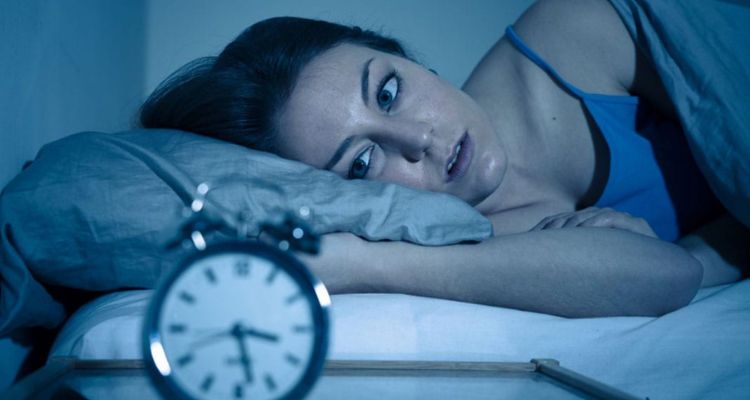You might have heard much about junk food, but what’s this junk sleep?
Well, more people tend to spend more and more time on their devices. This habit has even solidified during the pandemic.
With online school and virtual work, you must stay glued to your screen. There’s no other option. The potential downside of overusing these devices is junk sleep and judging by the names. It seems like it isn’t a good thing by any stretch.
This guide will give you all the details you need about junk sleep and how to deal with it, so carry on reading until the end.
Do you Know What Is Junk Sleep?
If you tend to find yourself tossing and turning a lot during your sleep or you always feel exhausted when you get up, you know what junk sleep is.

As per The Sleep Council – an institution that talks about the importance of sleep and its link with our health – junk sleep is neither good nor long enough in terms of quality to restore your brain to functioning properly when you get up the next day.
The leading source of the junk sleep problem is the constant use of these devices before bed. Any lack of bedtime routine or being surrounded by a chaotic environment can adversely impact your sleep at night.
How Common is this Junk Sleep?
Junk sleep or bad sleep is a chronic issue, and it is pretty widespread across the US. Many people tend to fall asleep with their television and its sound on. So, sleeping during the day in a chaotic environment for these people is the norm and sleeping this way is not healthy.
According to a study by SleepScore, 2 out of 3 people in America tend to sleep less than the CDC recommends, which is 7 hours for adults. Now, all that lost sleep adds up to 74 billion hours yearly. Now, that’s a huge number; no wonder we all feel tired each day.
Symptoms of Junk Sleep
One of the most common symptoms of junk sleep is a lack of focus and attention. Moreover, your mind will always feel hazy throughout the day. But there are so many other symptoms of junk sleep,
- Low energy
- Poor concentration
- Irritability
- Mood disturbance (crankiness, anxiety, depression)
- Excessive fatigue and sleepiness
- Brain fog
- Chronic or body pain
- Memory decline and forgetfulness
- Declining health
- Attention issues
- Dull appearance
- Cardiovascular problems
- Digestion issues
You need to remember that these issues are not limited to the list. There can be several other problems that might originate over time.
Negative Impacts of Junk Sleep
Junk sleep can significantly impact your overall performance at work or home. According to a study in 2016, sleep deprivation in Americans costs the overall economy approximately USD 411 billion per year.
Hence, it impacts us at work and in our daily lives in different ways that can prove tragic or even catastrophic. There are studies that have shown that lack of sleep can influence our judgment, just like the effect of alcohol.
A study in 2016 by AAA Traffic Safety Foundation found that missing about a couple of hours of sleep increases the risk of a car crash by four times. And it can be pretty scary that your ride-share or taxi driver or your nanny who is behind the wheel and you are sitting with them in their vehicle might be suffering from junk sleep.
Another problem is that these sleep problems can take a long time to treat and recognize properly, as the human body adapts well. But in the long run, the impact accumulates over the years.
What are the Causes of Junk Sleep?
From tossing and turning to wake up at around 3 AM for no reason, there can be various reasons hidden behind this junk sleep problem.
You might experience night sweats or some other common sleep disruption, or maybe you are sleeping in a room with a chaotic environment due to kids or pets, or the loft is too strong at night.
There can be any reason behind junk sleep, and these factors are the ones that keep you up all night long. Apart from all that, there are some other common causes of sleep disruptions and junk sleep:
- Noise
- Children or pets
- Bed partners
- Light
- Acid reflux
- Allergies
- Snoring
- Pains and aches
- Temperature or thermal discomfort
- Uncomfortable mattress
- Sleep apnea
- Night sweats and hot flashes
Solutions for Junk Sleep
Getting good quality sleep shouldn’t be an issue. You need to improve your overall sleep hygiene, which will make a huge difference. The following text will share some sleep hygiene tips to help you deal with your junk sleep problem.
You need to create a relaxing bedtime routine
Before you go to bed, make sure to make a more relaxing routine for your senses. You can take a warm shower, read a journal or even meditate. It must be a relaxing activity before your bed cues our brain to wind down and go for the shut-eye.
Be sure you power down before you go to bed
You must be sure to power down at least an hour before bed. Keep in mind that blue light acts like caffeine for your brain and this light from digital screens prevents you from sleeping and disrupts the sleep-wake biorhythms. Therefore, youth must wind down their devices for at least an hour before bed.
Dimming the light
You have to consider the circadian rhythms or the body clock. It tells your body when to wake up and when to go to sleep. Any bright light in your room can disrupt these rhythms, and you will have to deal with many difficulties waking up or falling asleep.
Following a regular sleep schedule
You must set and follow a proper sleep schedule. This will be pretty tough for most people, but it is one of the most important to follow because no one wants to get up at 7 in the morning on weekends.

By following a schedule, you will develop a sleep framework, and your body’s internal clock will begin to follow it. This way, the body will know when to sleep and get up.
It will help you increase your focus and attention, too, because our mind and body will be awake when they should be.
Keeping things cool
Your warm bed and bedroom can impact your sleep and interfere with your body’s natural thermoregulation during sleep. For instance, you will wake up if your body heats up when it shouldn’t.
Keeping your room cool will help you enjoy a restful night’s sleep. The ideal temperature you should keep your bedroom at is around 65 F, which is highly conducive to excellent sleep patterns.
If that is something you cannot do, you can always look for some products that are ideally suitable for hot sleepers. Cooling pillows or mattress toppers can work (check the best selling cooling mattress toppers).
Mattresses with cooling technology can also come in handy (check the top rated cooling mattresses for hot sleepers). Moreover, there are headbands available that come with temperature adjustment features.
Don’t consume caffeine at least 6 hours before going to bed
Sensitivity to caffeine does vary from one person to another. But it impacts sleep quality for everyone, and this is the case with those who claim that their double espresso doesn’t keep them awake after dinner.
Some studies have found that you should stop consuming caffeine at least 6 hours before bedtime. In other words, you should stop drinking coals, teas, coffee, or similar beverages after 2 PM.
Forget about those nightcaps
Those nice glasses of wine or other stuff might make you drowsy for a while, but alcohol can cause sleep disruption. Hence, heavy alcohol consumption can significantly delay sleep onset, making it tough to fall asleep.
Passing out doesn’t mean you have fallen asleep. Therefore, it is important to stop drinking before you go to bed. Drinking too much alcohol is injurious to health in general too. So, prohibit those late-night stiff drinks, and you will be able to manage your sleep effectively.
Adding some movement or activity to your day
Another excellent routine you should develop is adding some movement to your daytime. You can go for some exercise or walks or even participate in sports.
The important thing here is to get some physical activity in and try to move, so the energy in your body gets consumed, and new energy is developed during the recovery process that is your sleep.
Creating a sleep sanctuary
Make sure to go for a comfortable mattress and use relaxing pillows to ensure that your sleep surface is extremely soothing to your senses. It will help you fall asleep pretty fast.
You can go for a firm or a soft surface, depending on the sleep positions you prefer. Side sleepers prefer to sleep on a softer surface, while back and stomach sleepers should sleep on firmer surfaces (check 10 amazing mattresses for stomach sleeper).
Change your location if you get up at 2 AM
Those sleepless nights tend to happen to everyone, which might not occur due to low-level sleep hygiene. If you end up tossing and turning, you should get up and go into some other room.
This way, you won’t associate our bed with worry and frustration. You can also read something or listen to relaxing music to calm your senses. Be sure not to look at the clock, or it will lead you to more stress.
Key Takeaways: What Is Junk Sleep?
Understanding Junk Sleep
Junk sleep is a term used to describe poor-quality sleep that doesn’t adequately restore your brain for proper functioning. It is often caused by excessive use of electronic devices before bedtime and a lack of bedtime routine or a calm sleep environment.
Prevalence of Junk Sleep
Junk sleep is a widespread issue, with a significant portion of the population in the United States not getting the recommended 7 hours of sleep. Sleep deprivation has far-reaching economic and health consequences, including impaired judgment and increased accident risk.
Symptoms of Junk Sleep
Junk sleep can manifest in various ways, including low energy, poor concentration, irritability, mood disturbances, excessive fatigue, and even physical health problems such as cardiovascular issues and digestion difficulties.
Negative Impacts of Junk Sleep
Junk sleep can impact your performance at work and in daily life. Sleep deprivation costs the economy billions of dollars annually and can affect judgment and safety, similar to the effects of alcohol consumption. It can also take a long time to treat, leading to cumulative health issues.
Causes of Junk Sleep
Several factors can contribute to junk sleep, including noise, disruptions from children or pets, excessive light, acid reflux, allergies, snoring, discomfort, sleep apnea, night sweats, and hot flashes. Identifying and addressing these factors is essential for improving sleep quality.
Solutions for Junk Sleep
Improving sleep hygiene is key to overcoming junk sleep. Establishing a relaxing bedtime routine, avoiding electronic screens before bed, managing lighting, following a regular sleep schedule, and keeping the bedroom cool can all contribute to better sleep. Limiting caffeine and alcohol consumption, engaging in physical activity, and creating a comfortable sleep environment are also essential steps.
Conclusion:
Junk sleep is pretty bad, and if it continues in the long run, it can cause sleep disruptions and alter your health and wellness. You must develop proper sleep hygiene to ensure your body takes appropriate rest when it needs to. This way, you will be able to enhance your focus and attention.
Resources
https://www.reuters.com/article/uk-britain-sleep-idUKL2883870720070828
https://www.yahoo.com/now/americans-lost-74-billion-hours-130000587.html
https://www.rand.org/news/press/2016/11/30.html
https://www.ncbi.nlm.nih.gov/pmc/articles/PMC1739867/
https://www.sciencedaily.com/releases/2016/12/161206110235.htm
Junk sleep FAQs
Could your mattress be to blame for Junk Sleep?
Yes, your mattress can be the cause of junk sleep. If you have been sleeping on an old and sagging mattress, your body is not in the proper position. It can lead to joint and back pain.
And that is the reason why you have been staying up or are not able to sleep. Therefore, look for a suitable mattress according to your body size and preferred sleep position.
What is considered junk sleep?
Junk sleep is not adequately optimized for maximum wellness and health benefits. It's neither long nor good enough in quality to restore your brain to enable it to perform productivity the next day.
Is sleeping in bursts healthy?
Sleeping in bursts might not have any direct or immediate impact. However, if you continue these bursts, your health will suffer in the long run. This way, you are hitting each cell in your body at risk, and serious medical issues may arise.

